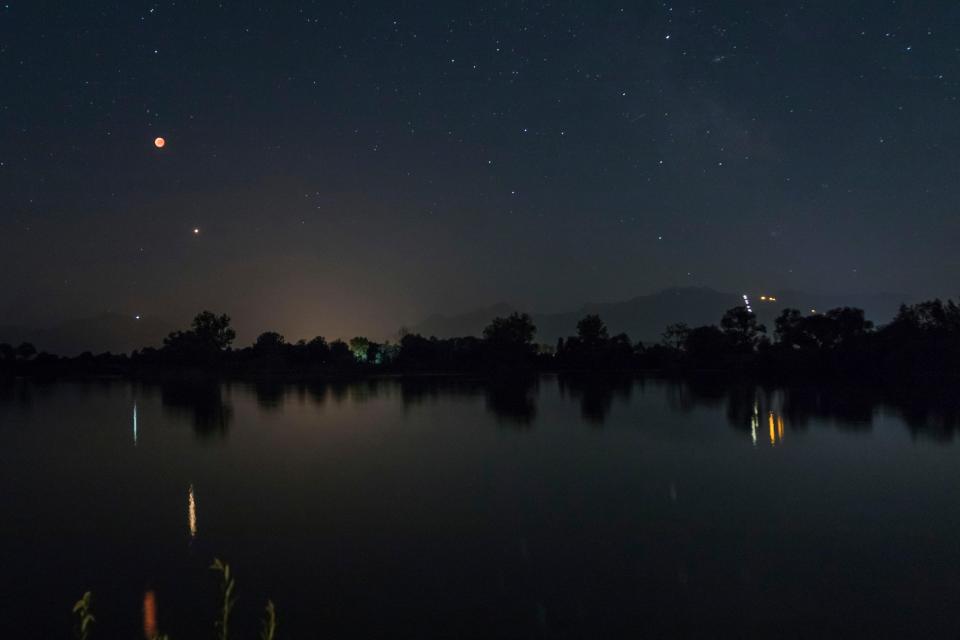Exact time to catch full Wolf Moon shine alongside Mars tonight in stunning sky spectacle
Tonight, Mars will be visible alongside the Wolf Moon, the year’s first full moon.
When night falls on January 13th, stargazers are urged to face the cold in order to witness the display.
A red’star’, which is the planet Mars, will be seen just below and to the left of the Moon on a clear night.
In the next two years, the Red Planet will be at its largest and brightest.
It will have a magnitude of -1.3, making it marginally less luminous than Sirius, the brightest star in the sky.
During the night, Mars and the Moon will grow closer to one another.
READ MORE ON SPACE
Once-in-a-lifetime comet set to shine in sky as one of the brightest in 20 years
Saturn’s rings vanish and twin Blood Moons must-see 2025 space events
For around an hour, the Red Planet will be obscured from view by the Moon.
Around 7:30 p.m. UTC is the ideal time to go outside.
The Wolf Moon is at its brightest about 10:25 p.m. GMT (5:25 p.m. EST).
Right now, the moonshine glare could make it difficult to see Mars.
Even while it won’t be one of Earth’s renowned Blood Moons, the lunar disk is predicted to become a subdued orange.
All you need to know about planets in our solar system
Earth is the third planet closest to the Sun in our solar system, which consists of nine planets. Learn more about the peculiarities of each planet, though.
-
How old is
Earth
? Plus other facts on our planet
-
How many moons does
Mercury
have?
-
What colour is
Venus
?
-
How far away is
Mars
to Earth? And other facts on the red planet
-
How big is
Jupiter
?
-
How many moons does
Saturn
have?
-
Does
Uranus
have rings?
-
How many moons does
Neptune
have?
-
How big is
Pluto
?
-
How hot is the
Sun
?











